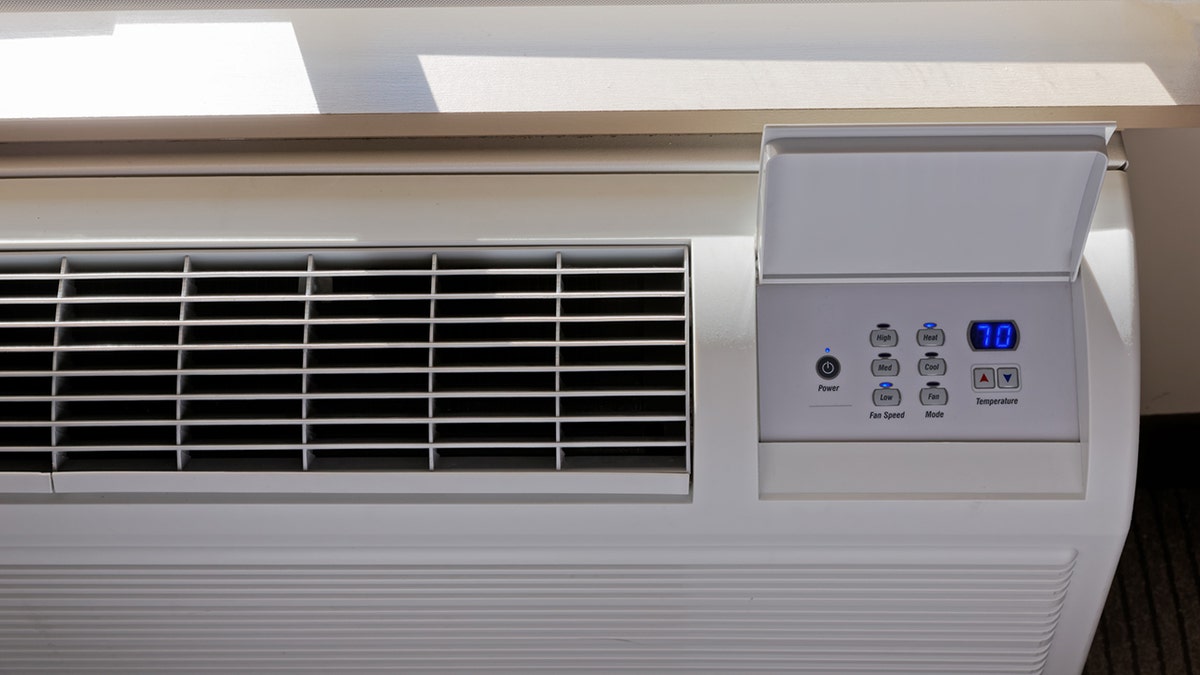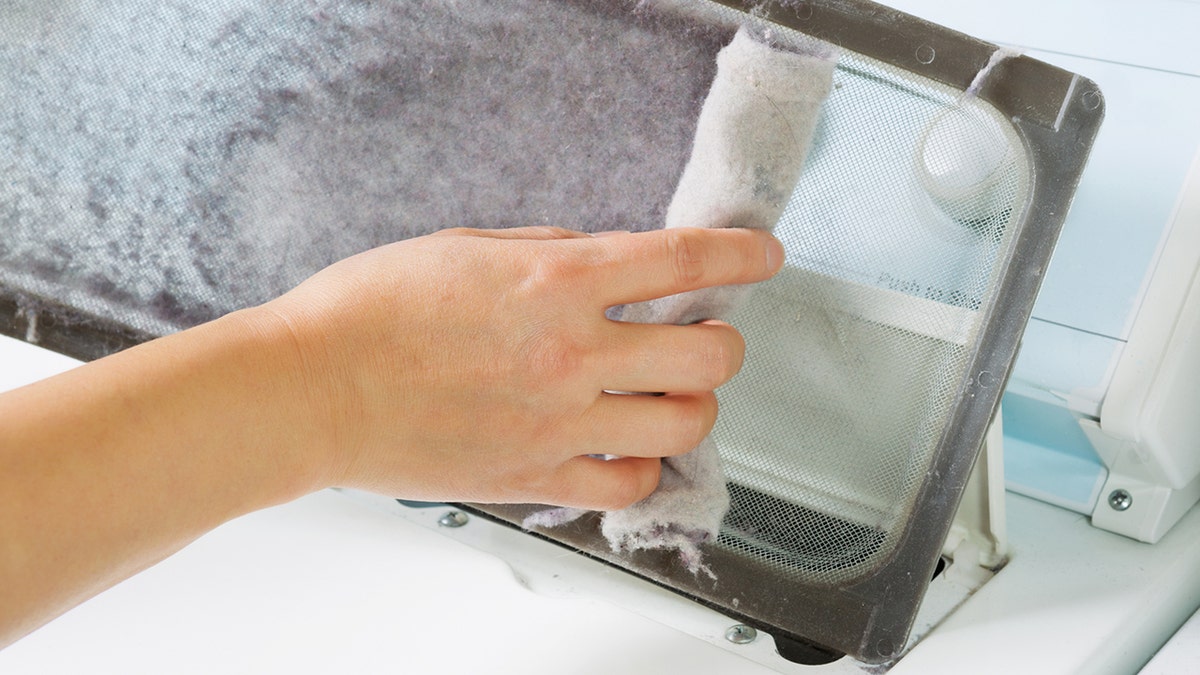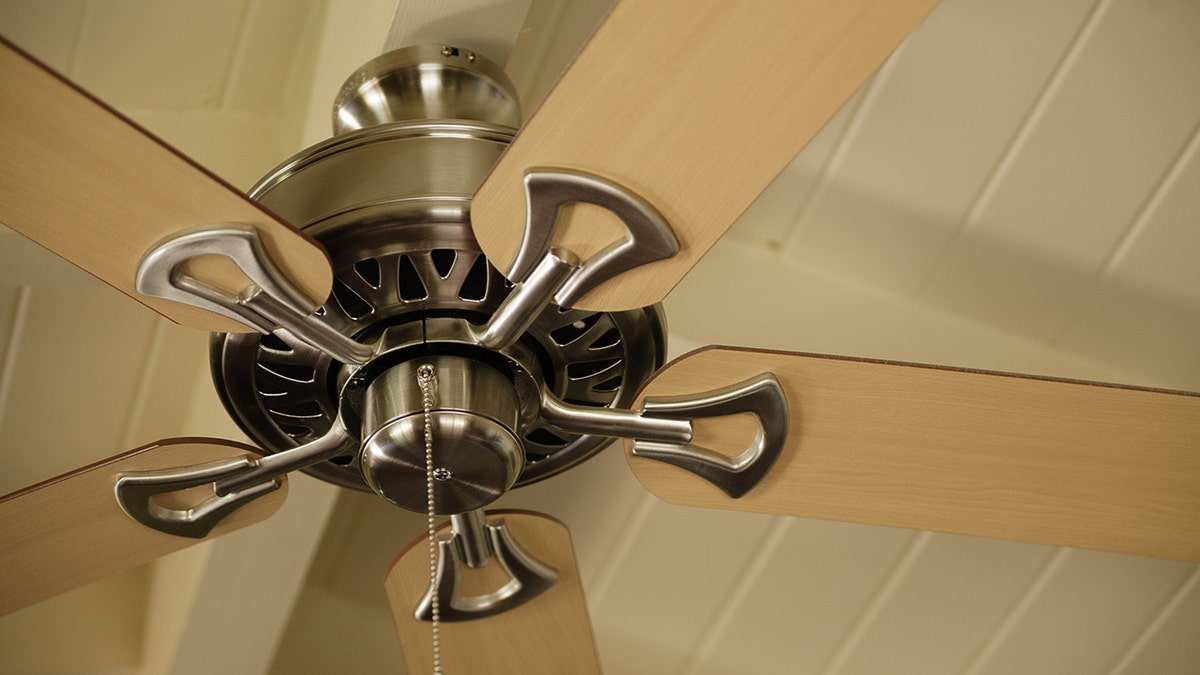
You can reduce your AC unit's energy consumption by as much as 15 percent with nothing more than simple maintenance. (iStock)
The electricity you use to power your home can cost a pretty penny: The average family spends $1,900 a year on utility bills, according to the government's Energy Star program.
But did you know that performing simple home maintenance tasks can substantially bring down the cost of your energy bills — and increase your home's efficiency? Saving green and going green has actually never been easier.
We've rounded up the most effective cleaning hacks and straightforward repairs that you can handle on your own. You've got this:
Dust and clean appliances
Cleaning the debris out of the vents, grates, and coils of your appliances such as the dishwasher, exhaust vent, washing machine and refrigerator will help their efficiency and performance. In fact, cleaning the coils of a refrigerator can reduce the amount of energy it uses by up to 30 percent, according to the Consumer Energy Center.

Removing lint from the dryer's filter and ducts will keep your machine running more efficiently, too. (iStock)
Make sure you remove built-up lint from the dryer filter, and inspect your dryer ducts and vents for any damages that might leak air.
Give your dryer a break
More From Realtor.com
Consider drying your laundry outside on a clothesline instead of using the dryer. You also might want to delay using your washer until the evening to avoid generating extra heat in your home during the day.
If you have to use the dryer, reduce the drying time.
"Try to back off five minutes and then another five minutes until you find that right setting for drying your wash," says Mary Findley, author of "The Complete Idiot's Guide to Green Cleaning."
She also suggests using "half a cup of distilled white vinegar to your wash rinse water — It does a great job of softening and pulling the soap out of the clothes, especially if you have skin conditions like eczema.”
Circulate with ceiling fans
Dust off and direct those ceiling fans in a counterclockwise direction. The circulation of the airflow can save you up to $165 in energy costs over the fan's lifetime, according to EnergyStar.gov. Energy Star ceiling fans, on average, circulate air with 20 percent more efficiency than noncertified models, so keep that in mind if you're in the market to buy a new one.

According to Angie's List, a ceiling fan costs about a penny per hour when in use, as compared to 36 cents per hour for an air conditioner. (iStock)
If possible, use a ceiling fan instead of your air conditioning to save on your energy bill. The cost of using an air conditioner averages 36 cents per hour of operation, but a ceiling fan costs roughly a penny per hour of use, according to Angie's List.
Check the air conditioner
Give your air conditioner a maintenance check, and have it serviced before the hot summer months hit. The Department of Energy says replacing a dirty air filter can reduce your air conditioner's energy consumption by up to 15 percent. Check and clean your air filters every two months to ensure a clean system with proper airflow, especially during the summer months when your AC gets the most usage.
Seal air leaks
Some common places where air can escape from your home are the attic, windows, doors, floors, ducts and fireplaces, and around plumbing, vents and electrical outlets. Reducing air leaks can cut about 10 percent offan average household's monthly energy bill, saving up to $200 a year in heating and cooling costs, according to Energy Star.
Seal any air leaks around your home with expandable foam. You can buy the foam from your local hardware store or online for a few bucks.
Proper ventilation and airflow also reduce the chance for mold growth “whether it’s from leaky ducts or condensation in your attic and crawl spaces,” says Enoch Lenge, energy efficiency specialist for Eversource Energy in Hartford, Conn.
If you’re not familiar with checking air leaks, you can reach out to a professional energy assessor who will run a comprehensive energy audit of your home. The pro will be better able to locate and assess air leaks with tools such as a blower or infrared camera to measure home energy efficiency.
For two more energy-saving tricks, continue reading Realtor.com's original article: "7 Home Maintenance Tricks That Will Save Money and Energy."